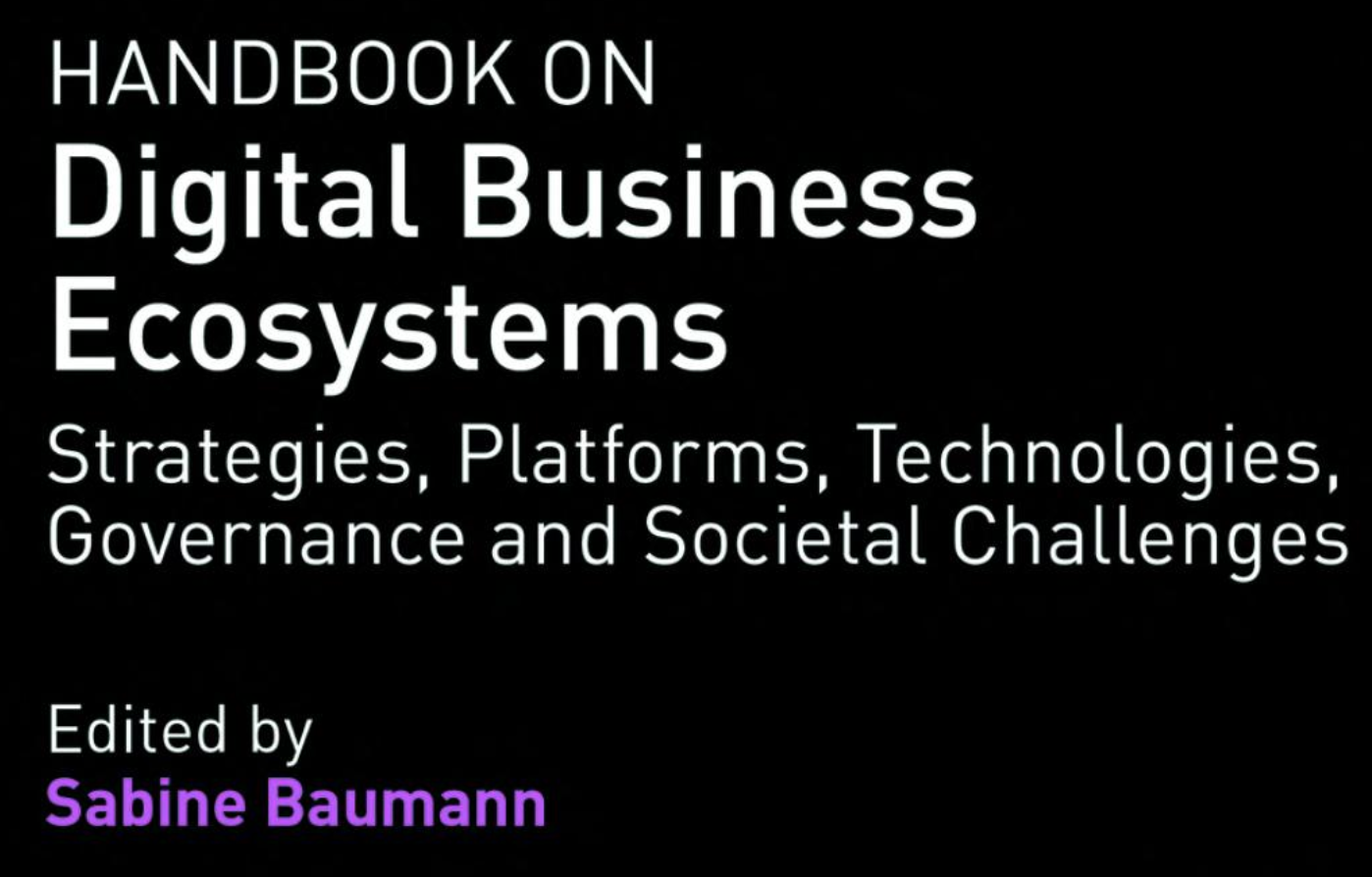
Dr. Timo Klünder und Prof. Dr. Marion Steven haben kürzlich einen Artikel – “The digital business ecosystem sustainability cube: an instrument enabling systematic collaboration decisions“– im Handbook on Digital Business Ecosystems veröffentlicht.
Abstract: As living organisms evolved well-adopted strategies and structures they are also a rich source of inspiration for addressing not just technical but also economical, environmental or social issues. Digital Business Ecosystems integrate the strategies of nature and the technologies of digitization to cope with societal challenges. Sustainable production is not only trending, but also one of the biggest societal challenges of Digital Business Ecosystems. The Digital Business Ecosystem represents a complex network of relationships. This chapter strives to unbundle this complex network in order to carry out a study of Digital Business Ecosystems’ contribution on the societal challenge of sustainable development by developing an instrument for the evaluation of the anticipated sustainability performance of an actor within the Digital Business Ecosystem. The foundation for this is a comprehensive bibliometric analysis, providing a distinction between challenges, properties and objectives of Digital Business Ecosystems. Thirteen characteristic elements are transformed into ten performance measures and incorporated into a benchmarking instrument.
Klünder, T., Steven, M.: The digital business ecosystem sustainability cube: an instrument enabling systematic collaboration decisions, in: Baumann, S. (Hrsg.), Handbook on Digital Business Ecosystems, Edward Elgar Publishing, Cheltenham 2022, S. 492-509


